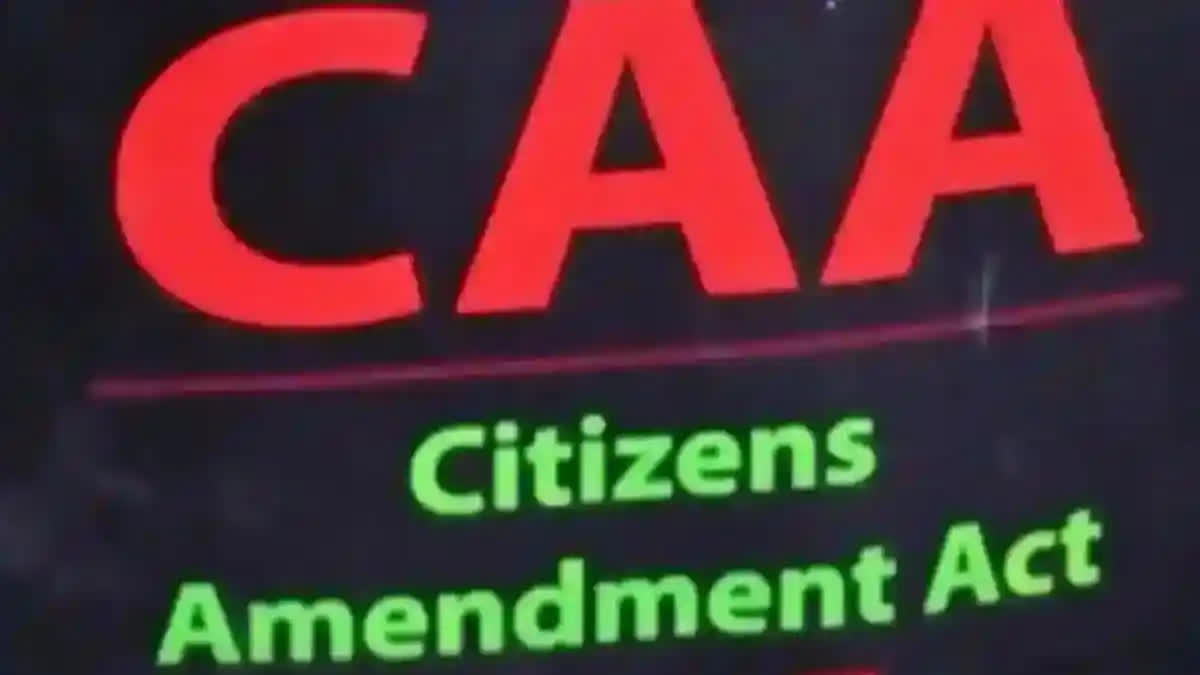New Delhi: The first set of citizenship certificates under the Citizenship (Amendment) Act (CAA) has been issued on Wednesday to 14 people, marking the beginning of the process of granting Indian nationality to persecuted non-Muslims migrants from Pakistan, Afghanistan and Bangladesh.
Here is a timeline of the Bill turning into an Act, to the Union Home Ministry handing over the first set of citizenship certificates on May 15, 2024.
December 11, 2019: Parliament passes the Citizenship (Amendment) Bill (CAB) 2019, aimed at granting Indian citizenship to persecuted non-Muslim minorities from Bangladesh, Pakistan, and Afghanistan.
December 13, 2019: President Ram Nath Kovind gives his assent, officially constituting it as the Citizenship (Amendment) Act (CAA).
December 2020 — February 2020: From December 2019 to February 2020, there was a wave of anti-CAA protests across the country, which eventually led to the Northeast Delhi riots.
Between December 2019 and March 2020: As many as 83 persons were killed in police firing and riots in Assam, Uttar Pradesh, Karnataka, Meghalaya and Delhi after the CAA was passed.
After the enactment of the Citizenship Amendment Act by the Government of India on December 12, 2019, widespread national protests against the act and its associated proposals took over. The protest began in Assam and quickly spread to other parts of the country.
Protestors opposed the CAA for allowing citizenship to immigrants, who came in after 1971 and making Muslims from Afghanistan, Bangladesh, and Pakistan ineligible to acquire citizenship under the CAA.
101 days of protest at The Shaheen Bagh: December 15, 2019: Women of Shaheen Bagh initiate an indefinite sit-in protest in Delhi, becoming a symbol of resistance against the CAA.
The Shaheen Bagh protest was a peaceful sit-in protest in Delhi, that began on December 15, 2019 and lasted until March 24, 2020. The protest was led by women who blocked a major road at Shaheen Bagh using non-violent resistance . Mainly consisting of Muslim women, the protest began in response to the passage of the CAA.
15.12.2019: Student-police clashes break out in Aligarh Muslim University (AMU) and Delhi's Jamia Millia Islamia University (JMI); women begin sit-in protest at Delhi's Shaheen Bagh, while protests break out in other parts of the country as well.
15.12.2019: BJP leader Kapil Mishra carries out a rally in support of the CAA, chanting slogans like "Goli maaron saalon ko, desh ke gaddaron ko," intensifying the rhetoric.
Violence in JNU on 5 January 2020: A masked mob of more than 50 people belonging to the student wing of the RSS vandalised property and attacked faculty members and students inside the JNU campus injuring more than 39 people. Students from universities across the country condemned the violence and led peaceful protests.
30.01.2020: A minor opens fire at a group of anti-CAA protesters outside Jamia Millia Islamia, injuring a student.
February 2020: Student-led protests escalate, leading to clashes with police in various parts of the country.
23.02.2020: Delhi witnesses communal violence, resulting in over 53 deaths and the displacement of thousands, predominantly from the Muslim community.
February 2020: In the run-up to the Delhi elections, BJP political leaders employ incendiary slogans equating protestors against CAA-NRC to anti-national elements.BJP leader Kapil Mishra issues an ultimatum, demanding the clearance of protest sites. Violence erupts shortly after his speech, resulting in fatalities, including the death of police head constable Ratan Lal.
Post-February 2020: Legal challenges emerge, with petitions challenging the constitutional validity of the CAA. The outbreak of the Covid-19 pandemic and subsequent lockdowns suppressed the protests and discussions around the CAA.
30.11.2022: In an affidavit filed in the Supreme Court on November 30, 2022, the MHA said that CAA only makes eligible a class of foreigners who had taken shelter in India on or before December 31, 2014 due to persecution faced by them in three specified countries on grounds of their religion.
26.12.2023: Union Home Minister Amit Shah has asserted that no one can stop the implementation of the Citizenship (Amendment) Act as it is the law of the land and accused the West Bengal Chief Minister, Mamata Banerjee, of misleading people on the issue.Addressing a closed-door meeting of the State BJP's social media and IT wing members at the National Library here on December 26, Mr. Shah said it is the party's commitment to implement the CAA.
03.01.2024: Reports emerge suggesting that rules for the CAA are prepared by the central government and will be notified "much before" the announcement of the Lok Sabha elections in 2024.
28.01.2024: Union Minister Shantanu Thakur declares at a public rally that the CAA will be implemented across all states in India within seven days. The government aims to modernize the citizenship-granting process by making it online, allowing applicants to apply even from their mobile phones. Rules for the CAA's implementation are expected to be issued before the announcement of the Lok Sabha elections, raising expectations for a clearer pathway towards the law's application.
11.03.2024: The Prime Minister Narendra Modi-led Government announced the implementation of the Citizenship Amendment Act (CAA). The move came before the Model Code of Conduct (MCC) came into play ahead of the Lok Sabha election 2024.
15.05.2024: The first set of citizenship certificates under the Citizenship (Amendment) Act (CAA) were issued to 14 people.
Read More:



